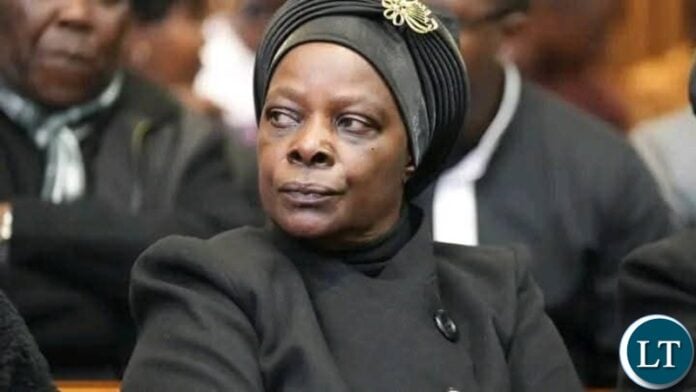“Whose Body Is It?”: Clash Between State Power and Widow’s Rights
By Guest Contributor – Musadabwe Ngoma
Published: September 8, 2025
When former President Edgar Chagwa Lungu passed away, many hoped the country would unite in mourning. Instead, his death has triggered an unprecedented legal standoff, not in Zambia, but in South Africa, where his widow, Mrs. Esther Lungu, is fighting to keep his body from being repatriated against her will.
At the center of this deeply emotional and highly legal battle lies a question few expected to confront, Can the Zambian state demand the return of a body for a state funeral, even when the family refuses?
A Legal Case Built on Symbolism, Not Law
Contrary to what many assume, there is no Zambian law that governs the burial of a late president. No clause in the Constitution. No statute in the books. What exists is simply a gentleman’s offer, a political courtesy extended by the state to the family of a deceased leader.
In other words, it is not mandatory for a former head of state to receive a state funeral. It is not enforceable. It can be offered, but also declined.
This detail changes everything. The Zambian government is not standing on the firm ground of law, but on the shifting sands of tradition, and trying to impose that tradition inside the courtroom of another sovereign nation.
A Dispute with International and Constitutional Consequences
In the Pretoria High Court, the Zambian state argues that it has a right to repatriate the late President’s body based on a signed agreement, referred to as FAA 7, between itself and some family members. The state says this agreement grants them authority to organise a state funeral.
But Mrs. Lungu, his widow, has pushed back, stating that the agreement is not binding, and more importantly, contradicts her rights under South African law and constitution, where she lives and where the deceased’s body lies.
Her legal team makes two key points:
-
Under South African law, a corpse cannot be contracted over, human remains are not property, and are protected by dignity and family rights.
-
The South African Constitution guarantees everyone on its soil, including foreigners, rights to dignity, family integrity, and privacy, rights which Mrs. Lungu asserts are being violated by the attempt to override her wishes.
The Zambian Government’s Argument, A Matter of Legacy
The state, however, frames the issue as one of national importance. They argue that President Lungu was not just a private citizen, but a national figure, and that it is in the public interest to honour him with a state funeral in Lusaka.
They lean heavily on the existence of FAA 7, and cite a South African court precedent (Sengadi v. Tsambo) which allowed the state to take over funeral arrangements for a public figure, even against parts of the family’s wishes.
But this is where things get murky. The South African case involved intra-family conflict, not a foreign state attempting to override a widow’s rights inside South Africa. And unlike Zambia, South Africa does have clear constitutional protections in place.
So… Who Decides?
The broader question is no longer just legal. It’s philosophical.
Who decides what happens to the body of a national leader?
Is it the family, who loved and lived with him?
Is it the state, which he once served?
Or is it something we must now define through international legal precedent?
What’s clear is that if Zambia has no law mandating state funerals, then the government’s demands are based not on legal rights, but on symbolic expectations. And when those expectations clash with a widow’s constitutional rights in another country, the law must favour the living over the ceremonial.
Final Thought, Justice Must Be Human, and Honest
As this case moves toward a likely hearing at the Supreme Court of Appeal, one thing must be made clear, Zambia has no binding law that mandates how a former president should be buried. There is no statute, no clause in the Constitution, no Act of Parliament that enforces a state funeral upon a family’s wishes. What exists, at best, is a gentleman’s understanding, a political offer, not a legal obligation. An offer that, like any offer, can be accepted or declined.
And yet, a widow now stands in a foreign court, fighting to decline what should never have been forced upon her in the first place.
This changes the dynamics of the entire dispute. The government is not invoking law, it’s invoking precedent dressed as entitlement. But tradition cannot override rights, and ceremony cannot outweigh the Constitution. Not in South Africa. Not anywhere.
This isn’t a legal standoff. It’s a human one. It’s about who we honour more, the legacy of a statesman, or the love of the one who knew him best.
May the courts remember, the dead do not belong to governments.
And dignity, in death, should not require litigation.
For publication inquiries, contact editor-at-lusakatimes.com or social-at-lusakatimes.com



Why hasn’t my article on Frank Tayali not been published dear editor?
send to social-at-lusakatimes.com